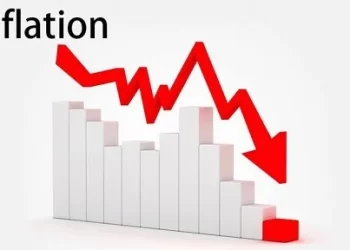The Bank of Ghana (BoG) has suffered cumulative foreign exchange losses of GH¢2.1 billion over the past two years as a result of its participation in the government’s ambitious Gold for Oil (G4O) programme.
Data from the Central Bank shows a dramatic surge in the Bank’s exchange losses linked to the Gold for Oil initiative.
From GH¢317 million in 2023, the losses ballooned to GH¢1.82 billion in 2024.
These figures are part of a broader GH¢3.49 billion hit in revaluation and exchange losses that year, suggesting that the G4O initiative was a major contributor to the bank’s continued financial strain.
As at December 31, 2024, the BoG had committed a seed capital of GH¢4.69 billion to support the Gold for Oil programme.
That figure, and the ensuing losses, underline the challenges that come with executing complex commodity-for-commodity trades through international markets—especially when those trades are denominated in volatile currencies and priced against ever-shifting gold and petroleum benchmarks.
According to the Central Bank’s 2024 financial statement, the programme, designed to stabilize fuel prices and protect dwindling foreign reserves, instead exposed the institution to significant foreign exchange and commodity price risks that eventually proved costly.
While the BoG posted a marginal recovery in its overall financial performance—reducing its operating loss from GH¢13.23 billion in 2023 to GH¢9.49 billion in 2024—losses attributed to the G4O programme alone accounted for nearly 20% of the bank’s total operating income of GH¢9.40 billion for the year.
The mechanics of loss
The core idea behind the G4O programme was to exchange locally mined gold for refined petroleum products, thereby reducing Ghana’s dependency on the U.S. dollar for fuel imports.
The initiative was launched in December 2022, at a time when pump prices had soared from GH¢6.90 per litre to GH¢22.80, triggering public outcry and threatening macroeconomic stability.
The theory behind the programme was to leverage Ghana’s comparative advantage in gold production to sidestep forex markets and secure essential petroleum products.
But in practice, the execution proved riddled with financial and operational complications.
Each transaction required a sophisticated triangulation: convert gold into forex, use that forex to purchase petroleum products on the global market, and then deliver those products back to Ghana.
This process exposed the Bank of Ghana to three layers of risk—fluctuating global gold prices, volatile exchange rates, and unpredictable petroleum market dynamics.
Any unfavourable movement in one or more of these variables could rapidly turn an otherwise viable trade into a loss-making endeavour.
Board approves exit from programme
In what may be seen as a quiet admission of the programme’s unsustainability, the Board of Directors of BoG, at its meeting on March 13, 2025, formally approved the institution’s withdrawal from the G4O programme.
This decision marks the end of a significant experiment in commodity-backed trade financing.
Broader implications
The fallout from the BoG’s participation in the Gold-for-Oil programme carries wider implications for Ghana’s macroeconomic strategy and for other emerging market economies exploring similar barter-style mechanisms.
While the programme may have achieved short-term price moderation at the pumps, the long-term financial cost to the Bank of Ghana raises serious questions about the viability of using gold reserves for fuel security—especially when the value chain involves multiple conversion points and international market exposure.
It also highlights the difficult balancing act that central banks in developing economies face.
On one hand, they are tasked with supporting government policy in times of crisis; on the other, they must safeguard monetary stability and financial soundness.
The BoG’s experience with G4O underscores the tension between economic pragmatism and institutional discipline.
What next for fuel security?
With the G4O initiative now shelved, the government has reverted to traditional foreign exchange-dependent import mechanisms to secure petroleum products.
This could reignite pressure on Ghana’s external reserves and expose consumers once again to global oil price volatility.
The episode also calls for greater transparency and accountability in the design and execution of such strategic programmes.
The Bank of Ghana’s GH¢2.1 billion exchange loss from the Gold-for-Oil programme serves as a cautionary tale about the hidden costs of non-traditional trade schemes, particularly in countries where macroeconomic buffers are limited.
Financial burden
GH¢2.1 billion in forex losses weaken BoG’s balance sheet and divert resources from core functions.
Policy reassessment
Exit from the G4O programme signals a shift away from unconventional trade financing in Ghana.
Market lessons
Highlights the risks emerging markets face in leveraging natural resources for strategic imports.
Economic risk exposure
Ghana remains vulnerable to global oil prices and forex fluctuations, post-G4O.
Institutional integrity
Reinforces the need for central bank independence in navigating complex policy interventions.














